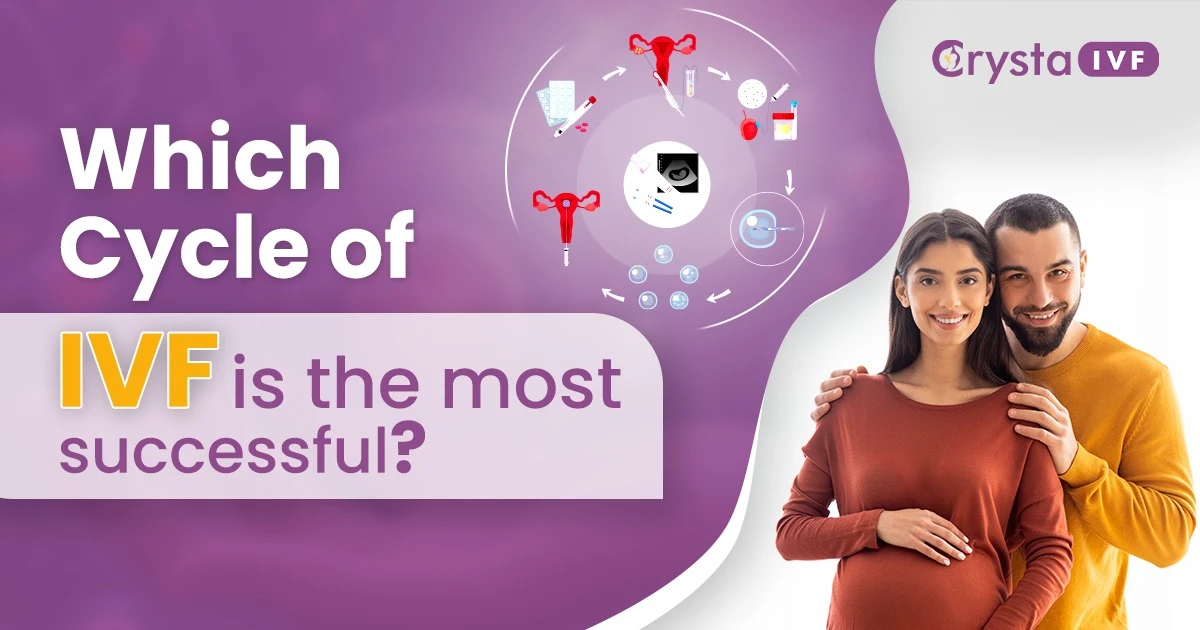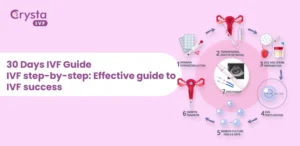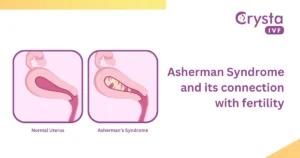In vitro fertilization (IVF) is an infertility treatment for individuals or couples who are unable to conceive naturally. With modern technology and an advance in medical sciences, the success rates of this procedure have increased significantly. However, people still may need to go through multiple IVF cycles to achieve conception. If you wonder which cycle of IVF is most successful or how many IVF cycles are required in order to conceive successfully, keep reading on. This article discusses every topic you should know about IVF cycles.
What is an IVF cycle?
IVF cycle refers to the full process of IVF treatment, which involves consultation, retrieval of eggs, fertilization, embryo implant, and pregnancy tests. Generally, patients have to go through this process multiple times to achieve healthy conception. This is why it is called an IVF cycle. A full IVF cycle may take 6-8 weeks. However, you should remember that IVF treatments can vary from person to person, as everyone has a unique body. Some people may be able to achieve pregnancy after a single IVF cycle, while others may require two or more to succeed.
Also Read: What Should Be the Gap Between 2 Consequent IVF Cycles?
How many IVF cycles do you need?
The frequency of IVF cycles needed to conceive hugely depends on many personal lifestyle and health factors, such as Age being the most important, followed by smoking habits, alcohol consumption, low sperm quality of partner/donor, history of miscarriages, genetic history of infertility, exposure to toxins, etc. Psychological and emotional factors may also play a role in the success of IVF procedures. All these factors dictate the number of IVF cycles needed by individuals and couples to achieve a healthy conception.
On average, most couples need to go through 2-4 IVF cycles before conception. Success rates also increase with subsequent IVF cycles. However, there is no concrete number of IVF cycles you may need to achieve conception; therefore, it is necessary to consult your doctor and plan your IVF journey accordingly.
How successful are IVF cycles with increasing age?
Fertility starts to decrease with age, both in males and females. Males begin to lose sperm count and quality after the age of 40, whereas female fertility starts to decline after the age of 35. Here are the success rates of subsequent IVF cycles with increasing age:
| Age Groups | First cycle | Second cycle | Third cycle |
| Below 30 | 43% | 59% | 66% |
| 30-35 | 48% | 61% | 67% |
| 36-37 | 32% | 44% | 50% |
| 38-39 | 22% | 32% | 38% |
| 40-41 | 13% | 21% | 25% |
| 42+ | 2% | 5% | 5% |
As we can notice in the table above, age groups below 35 have an increased success rate in each subsequent cycle, as compared to age groups above 35, where success rates start declining with increasing age. However, each subsequent IVF cycle still shows growth in success rates among all age groups. It is seen that the 2nd and 3rd IVF cycles have significant success rates
Related Blog: What is the Age Limit for IVF Pregnancy?
5 Ways to support IVF success rates
IVF success rates generally depend on many factors, varying from person to person. There are, however, several ways to ensure higher success rates. Here are the most common ways to support your IVF success rates:
Maintain a healthy BMI
A healthy BMI is crucial for the success of an IVF cycle. People with underweight or overweight BMIs usually take 2-4 times more time to achieve conception than people with a normal BMI. A BMI between 19.5 and 23.5 is considered ideal and safe for undergoing an IVF procedure. An unhealthy BMI can negatively affect the quality of the eggs in females and sperm in males.
Avoid alcohol and caffeine.
Alcohol and caffeine are negatively associated with fertility. Excessive consumption of these drinks may decrease fertility in both males and females. Moreover, Alcohol can also interfere with the fertility drugs administered to females during IVF procedures. Hence, it is better to avoid these drinks before and during an IVF cycle.
Quit Smoking
Smoking is a harmful habit which has adverse effects on our body. It may cause respiratory problems, cardiovascular issues, etc. Smoking also lowers sperm quality in males and egg quality in females, often disrupting other reproductive processes as well. Quitting smoking can be an effective way to restore your fertility and increase your success rates.
Related Blog: How Does Smoking Affect Male and Female Fertility?
Take supplements
There are various nutrients and supplements you can take to improve your fertility. Minerals like Vitamin D are linked with fertility levels. People with Vitamin D deficiency have a lower fertility rate. This is why having an optimum daily Vitamin D intake in your diet is important. DHEA is another supplement that is given to individuals going through IVF treatments. Research shows that DHEA is positively related to higher success rates, and starting a course 4-6 weeks before the IVF procedure can significantly improve your chances of conceiving.
Reduce stress levels
IVF cycles take a physical as well as an emotional toll on individuals and couples going through it. However, controlling and minimizing your stress levels throughout the process is crucial. Increased stress levels may act as a mental barrier and also cause certain physical complications in the IVF procedure. People can try different ways to reduce stress, such as meditation, listening to music, talking to loved ones, enrolling in counseling therapy, etc, to help minimize stress levels.
Related Blog: Yet Another Research Confirms-Stress and Female Infertility are Related
Start your IVF journey today with Crysta IVF!
IVF is a miraculous procedure that has helped countless couples achieve conception. Each individual is different and may require one or more IVF cycles to conceive successfully. If you are looking to start or restart your journey of IVF treatments, Crysta IVF might be the best choice for you. Our fertility experts are determined to provide patients with the best treatments and utmost care. Our facility is equipped with state-of-the-art technology, ensuring the best outcomes. Book a consultation with Crysta IVF today!
Read More Blogs:
9 Ways to Boost your chances of conception with IVF
Mistakes To Avoid During IVF Treatment
What is Laser Assisted Hatching and Who Is It For?
Does Sperm Quality Affect IVF Success?




